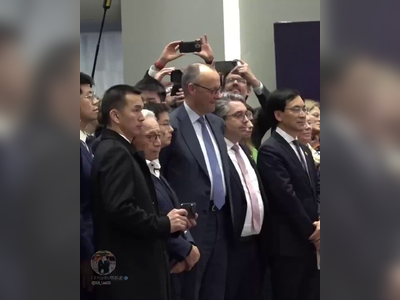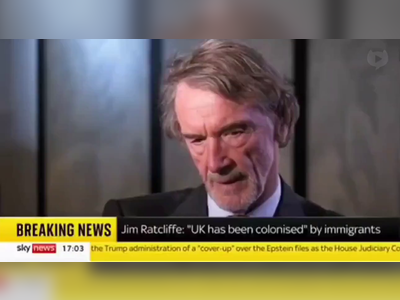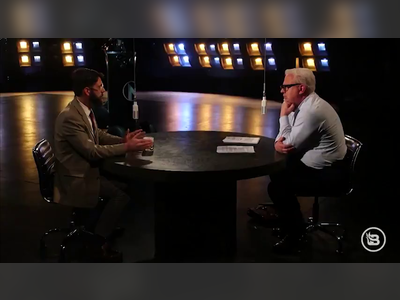
Holy relic: what will be left of the Church of England after the pandemic?
Before the pandemic, the C of E had seen attendance halve in a generation. Weekly religious attendance is highest among non-Christian faiths (40 per cent), followed by Roman Catholics (23 per cent) and all other Christian denominations (23 per cent). Anglicans are much less likely to attend weekly (9 per cent), or at all — 57 per cent say they go to church ‘never or practically never’.
Yet that gap between the number identifying as C of E and actual attendance presents an opportunity. It shows an untapped interest in preserving our national church. When Covid struck, and those people turned to their churches for spiritual consolation, what did they find? Closed doors. The Anglican church should have been at the forefront of the pandemic response. But the leadership’s reaction has been supine and the C of E now faces an existential crisis.
In pre-Covid times, parish-giving totalled £1.1 billion, the vast majority of the church’s revenue. Lockdown dealt a hammer blow to the finances. After a service on Zoom, there is no collection plate to pass around. The ‘shortfall’ in parish-giving means cuts must be made to the parishes (or so the argument now goes). But who was it who pushed to close the churches, making collections and fundraising impossible? While Justin Welby was Zooming from his kitchen on Easter Sunday, many vicars and parishioners felt let down. Even committed churchgoers like me feel almost ready to walk away.
In November cuts were announced in Chelmsford diocese, making 61 parish clergy posts redundant. The plan is to apply similar cuts nationally. As the country faces recession, the Church of England should be rallying to help sad legions of newly unemployed, not adding its own vicars to the dole queue. Cuts will be devastating for both the clergy and the communities they serve. A leaked paper from the Archbishop of York envisages that, out of every five Anglicans who attended church pre-lockdown, only four can be expected to return. This is the ratio Chelmsford is working to: donations are expected to be down by 20 per cent this year.
Clerical jobs in Chelmsford have been graded in traffic-light tiers to signal how likely they are for the chop. Parishes in ‘green’ are expected to have enough of a congregation left to pay for a full-time priest plus diocesan costs. Another 82 jobs are ‘amber’: on the edge. Vacancies there are likely to be filled by fixed-term interim clergy, allowing time to reassess their ‘sustainability’. Finally, 45 jobs are ‘red’, meaning the congregation needs to consider other possibilities for leadership, such as service by house-for-duty clergy and licensed lay ministers.
Some Chelmsford clergy feel depressed, even suicidal. ‘For the first time in my long ministry, I feel demoralised and unwanted,’ one tells me. ‘I left my former career to serve God and His church. I did not expect this,’ said another. Tellingly, they feel too afraid to speak out, except anonymously. As a parish church volunteer for 25 years, I squirm to see a culture of fear in a Christian organisation.
The church is not a financial business; other factors should be considered, and management systems should be a positive way of rewarding the good. Chelmsford’s is extremely negative; it implies that a good vicar is one who brings in enough money, who prioritises rich over poor.
It is tragic to see clergy being discarded when we need them most. We all understand the need to retrench. But in a well-managed business, a belt-tightening review should encompass the entire payroll. Chelmsford’s grading system applies only to parish clergy, not diocesan employees; it has just advertised for a CEO at a salary of £85,000-£90,000. Compare this with a vicar’s £27,000 ‘stipend’.
Moreover, a ‘second wave’ of cuts is threatened, with 49 more posts to go by 2026 if giving levels do not increase. With extraordinarily crass timing, Chelmsford has launched a giving campaign under the slogan ‘Generous God, Generous Disciples’.
Am I feeling generous? No. My rector is already stretched over seven villages and five churches. The hierarchy’s lack of recognition that clergy are catalysts for giving seems bizarre. ‘The most important people in the church are the laity, the ones for whom we exist. Seeing such a cold, managerial strategy is unlikely to invoke generosity as a Christian, devotional response,’ says Canon Paul Hamilton, the Chelmsford vicar whose church was showered with £22,000 in donations within days of being damaged by an illegal rave last month.
The laity. Who cares about the volunteers who clean the church, teach Sunday school, organise the flower rota, raise yet more funds to replace the roof? In the autumn the Archbishops of Canterbury and York held focus groups to consult on the future direction of the C of E. In a snub to their parishes, they consulted young people, including primary school children, instead of existing donors.
This month the C of E’s elected governing body, the General Synod, will hear the Archbishop of York’s plans to impose a management system on its parishes nationally, rolling out Chelmsford-style cuts on parish clergy and selling assets owned by the parishes, to fund yet more managers. Retained parish clergy would be stretched over larger areas in a managerial role.
This would effectively end the C of E as we know it, converting a precious network of parish churches into a remote institution which controls everything centrally. The church had problems before lockdown, but with more people working from home there is a trend towards localisation. The church commissioners could use some of the church’s investment income to regenerate the parishes. If allowed to keep more of their own money, freed from endless fundraising to pay diocesan bills, and liberated from the struggle with bureaucracy, parish clergy and volunteers might be able to take advantage of a mood of post-pandemic renewal.
Instead, we face a policy of withdrawal, embarked upon in haste, behind closed doors. As the Revd James Rodley asked in a letter to the Church Times, how can it be right to use the church’s inherited assets — the gifts of past generations — to pay lawyers and HR managers to make vicars redundant?
Another proposal is that parishes rely on lay readers, self-supporting priests and retired clergy. This reflects a fundamental failure to recognise the nature of volunteering. Increasingly, retired clergy are not applying for Permission To Officiate because of the strangulating bureaucracy. Volunteers’ time and donations, freely given, can be freely withdrawn.
Unlike parish clergy, who inspire giving, new management posts can only be funded, ultimately, by increasing diocesan bills from parishes. This puts pressure on volunteers, and makes it harder to fundraise. One local bishop behaved like a loan shark on Zoom, berating volunteers for having run out of money, reducing a treasurer to tears. ‘The bishops won’t listen. They love their corporate existence,’ says one church observer. ‘They want online worship live from the Church of England Central. Bad luck if you are elderly or poor and don’t have internet.’
The plan to dismantle the parish network is quite simply the biggest act of church vandalism since the dissolution of the monasteries. It comes at precisely the moment when communities need the comfort and assistance of leaders on the ground. ‘Parishes are being kicked almost to death, then woken up and told to pay up,’ says one vicar. If clergy refuse to pass on their parish donations will church leaders listen?











